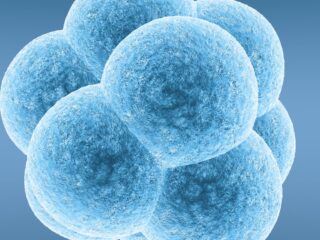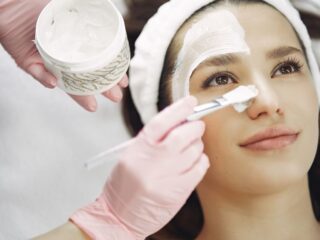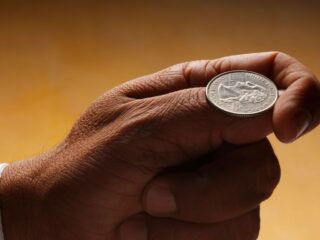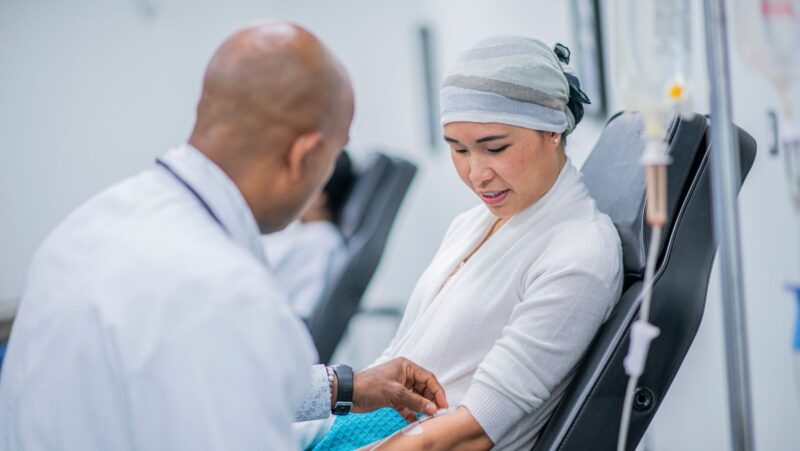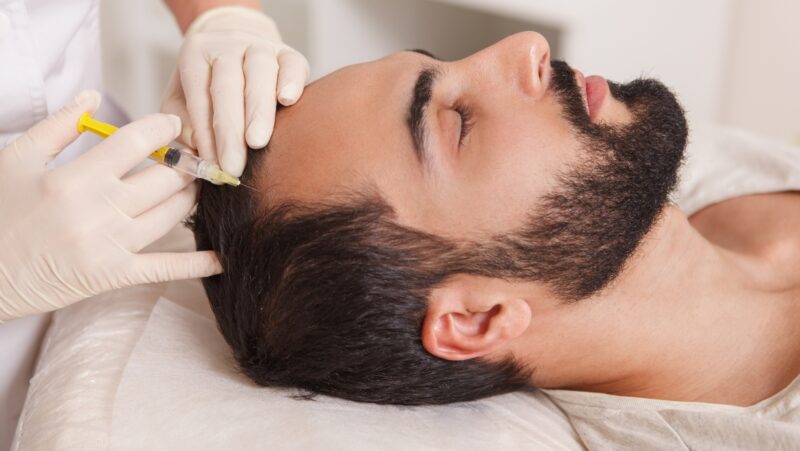
A Bachelor of Science in Health Science opens doors to diverse career opportunities in healthcare and medical services. This versatile degree program equips students with fundamental knowledge about human health wellness and disease prevention while preparing them for various roles in the healthcare industry.
Students pursuing a BS in Health Science learn about anatomy physiology healthcare administration public health policies and medical ethics. The program’s comprehensive curriculum combines classroom instruction with hands-on experience through laboratory work and clinical rotations. It’s an ideal foundation for those planning to advance into graduate programs or enter healthcare professions directly after graduation.
What is a BS in Health Science
A Bachelor of Science in Health Science degree combines foundational scientific principles with specialized healthcare knowledge. The program spans 120-128 credit hours over four years at accredited universities across the United States.
Core Curriculum Components
The health science curriculum includes:
- Biological Sciences: Human anatomy physiology biochemistry microbiology
- Research Methods: Statistical analysis data interpretation scientific writing
- Healthcare Systems: Organization management policy implementation
- Clinical Practices: Patient care protocols medical terminology documentation
- Public Health: Epidemiology health promotion disease prevention
Program Structure
The degree structure follows a progressive format:
- Year 1: General education requirements mathematics biology chemistry
- Year 2: Human anatomy physiology health informatics research methods
- Year 3: Healthcare administration epidemiology clinical procedures
- Year 4: Specialized coursework internships capstone projects
Specialization Tracks
Common concentration areas include:
- Healthcare Administration: Finance operations quality management
- Public Health: Community wellness program development policy analysis
- Pre-Professional: Medical dental pharmacy graduate school preparation
- Health Education: Program planning assessment evaluation strategies
| Program Component | Credit Hours | Percentage of Curriculum |
|---|---|---|
| Core Sciences | 45 | 35% |
| Healthcare Studies | 30 | 25% |
| General Education | 30 | 25% |
| Specialization | 15-20 | 15% |
- Analyzing healthcare systems operations delivery methods
- Implementing evidence-based practices protocols procedures
- Managing health information data security compliance
- Developing health promotion disease prevention strategies
- Applying medical terminology clinical documentation standards
Core Curriculum and Course Requirements
The BS in Health Science curriculum integrates scientific principles with healthcare management concepts across 120-128 credit hours. The program structure balances theoretical knowledge with practical applications through specialized courses distributed across eight semesters.
Science and Math Foundation
Students complete 45 credit hours of foundational science and mathematics courses in the first two years. The core requirements include:
- Biology courses covering human anatomy physiology biochemistry
- Chemistry sequences including organic inorganic chemistry
- Mathematics through calculus statistics
- Physics fundamentals with laboratory components
- Microbiology with clinical applications
- Research methods data analysis
| Course Type | Credit Hours | Year Taken |
|---|---|---|
| Biology | 15 | 1-2 |
| Chemistry | 12 | 1-2 |
| Mathematics | 9 | 1-2 |
| Physics | 6 | 1-2 |
| Research Methods | 3 | 2 |
- Healthcare economics financial management
- Health information systems technology
- Medical terminology coding
- Healthcare law ethics
- Quality improvement patient safety
- Healthcare policy administration
- Public health principles practices
| Course Type | Credit Hours | Focus Areas |
|---|---|---|
| Administration | 12 | Systems Operations |
| Technology | 6 | Information Management |
| Policy Ethics | 6 | Legal Compliance |
| Public Health | 6 | Population Health |
Career Opportunities with a Health Science Degree
A BS in Health Science opens diverse career paths in both clinical and non-clinical healthcare settings. Graduates possess versatile skills that align with numerous positions across the healthcare industry.
Clinical Roles
Health Science graduates enter various patient-facing positions in healthcare settings:
- Clinical Research Coordinators manage medical studies with patients
- Health Educators develop programs to promote wellness in communities
- Medical Laboratory Technicians perform diagnostic tests on patient samples
- Patient Care Coordinators oversee treatment plans across healthcare teams
- Rehabilitation Specialists assist patients with physical recovery programs
| Clinical Role | Average Salary (USD) | Job Growth Rate |
|---|---|---|
| Clinical Research Coordinator | $52,000 | 7% |
| Health Educator | $48,860 | 12% |
| Medical Lab Technician | $54,180 | 11% |
| Patient Care Coordinator | $45,820 | 13% |
| Rehabilitation Specialist | $51,450 | 16% |
- Healthcare Data Analysts interpret medical statistics for organizations
- Quality Improvement Specialists monitor healthcare delivery systems
- Healthcare Project Managers lead organizational initiatives
- Medical Device Sales Representatives market healthcare products
- Health Information Technicians manage patient records systems
| Non-Clinical Role | Average Salary (USD) | Job Growth Rate |
|---|---|---|
| Healthcare Data Analyst | $63,200 | 15% |
| Quality Improvement Specialist | $58,770 | 9% |
| Healthcare Project Manager | $67,280 | 13% |
| Medical Device Sales Rep | $71,450 | 8% |
| Health Information Technician | $45,240 | 11% |
Skills Developed During the Program
A BS in Health Science cultivates a comprehensive skill set through specialized coursework and practical training. Students develop both technical expertise and interpersonal abilities essential for healthcare careers.
Technical Competencies
- Analyze health data using statistical software packages like SPSS and R
- Apply evidence-based research methods to healthcare problems
- Execute laboratory procedures following clinical protocols
- Operate medical diagnostic equipment and monitoring devices
- Implement health information management systems
- Document patient care using electronic health records
- Design health education programs based on population needs
- Evaluate healthcare quality metrics and outcomes
- Apply infection control and safety protocols
- Use medical terminology accurately in professional communications
- Communicate complex health information to diverse audiences
- Collaborate in interprofessional healthcare teams
- Manage multiple priorities in fast-paced environments
- Problem-solve through critical analysis of healthcare scenarios
- Demonstrate cultural competency in patient interactions
- Lead health promotion initiatives and community programs
- Adapt to changing healthcare technologies and protocols
- Build rapport with patients and healthcare stakeholders
- Practice active listening in clinical settings
- Make ethical decisions based on healthcare principles
Program Duration and Study Format Options
A BS in Health Science program offers multiple study format configurations across a standard 4-year timeline. Traditional on-campus programs require 120-128 credit hours of coursework with full-time enrollment completing 15-16 credits per semester.
Full-Time Study Options
- On-campus daytime classes operate Monday through Friday from 8 AM to 4 PM
- Hybrid formats combine in-person labs with online lectures
- Accelerated paths allow completion in 3-3.5 years through summer terms
- Standard course load includes 4-5 classes per semester
Part-Time Study Options
- Evening classes scheduled between 6 PM and 10 PM
- Weekend cohort programs meeting Saturdays and Sundays
- Flexible online formats with self-paced learning modules
- Extended completion timeline of 5-6 years based on credit load
Online Learning Formats
| Component | Traditional Online | Synchronous Online | Hybrid Format |
|---|---|---|---|
| Live Sessions | None | 2-3 per week | 1 per week |
| Lab Work | Virtual simulations | Virtual labs | On-campus labs |
| Time Commitment | 15-20 hrs/week | 20-25 hrs/week | 18-22 hrs/week |
| Course Length | 8-16 weeks | 16 weeks | 16 weeks |
- Semester-based academic calendar with fall spring terms
- Summer sessions available for accelerated completion
- Clinical rotations scheduled in final two semesters
- Capstone projects integrated into senior year coursework
The delivery methods accommodate diverse student schedules with identical curriculum requirements across all formats. Transfer credits from accredited institutions apply toward degree completion with a maximum of 60-90 transferable credits accepted.
Admission Requirements and Prerequisites
Admission to a BS in Health Science program requires specific academic qualifications and prerequisites. High school graduates need a minimum GPA of 2.5-3.0 with completed coursework in:
- Biology with laboratory components
- Chemistry with laboratory components
- Algebra II or higher mathematics
- English composition
- Statistics or pre-calculus
Required documentation for admission includes:
- Official high school transcripts
- SAT scores (minimum 1000) or ACT scores (minimum 21)
- Two letters of recommendation
- Personal statement outlining career goals
- Completed application form
- Application fee ($50-$100)
Additional requirements include:
- Proof of immunizations (MMR tetanus diphtheria hepatitis B)
- Background check clearance
- Drug screening results
- Basic life support certification
- Health insurance coverage
Transfer students must provide:
| Requirement | Specification |
|---|---|
| College Credits | Minimum 24 transferable credits |
| College GPA | 2.75 or higher |
| Science Courses | Grade C+ or better |
| Prerequisites | Completion of all foundational courses |
| Time Limit | Credits earned within last 7 years |
International students need these additional requirements:
- TOEFL score (minimum 80 iBT) or IELTS score (minimum 6.5)
- Evaluated foreign transcripts
- Financial documentation
- Valid student visa
- Proof of English proficiency
- Communication skills
- Professional goals
- Program understanding
- Healthcare experience
- Leadership potential
Curriculum and Diverse Specialization
A BS in Health Science offers a robust foundation for those seeking to make an impact in healthcare. This versatile degree equips students with essential scientific knowledge clinical expertise and administrative skills that are highly valued in today’s healthcare landscape.
The program’s flexible learning formats comprehensive curriculum and diverse specialization options make it an attractive choice for aspiring healthcare professionals. Whether pursuing graduate studies or entering the workforce directly graduates are well-prepared to tackle the evolving challenges of modern healthcare and contribute meaningfully to improving public health outcomes.
Through rigorous coursework practical experience and specialized training students develop the expertise needed to thrive in various healthcare roles making a BS in Health Science a stepping stone to numerous rewarding career paths.


